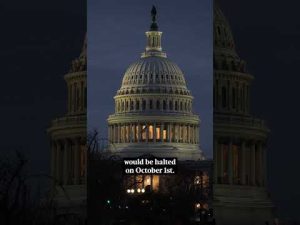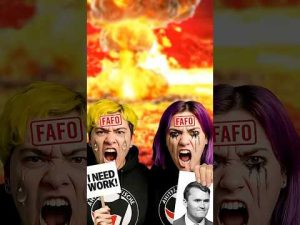In a stunning turn of events, the conversation around financial transparency and accountability has reached a fever pitch thanks to the tireless efforts of Ryan Morrow, a dedicated investigative researcher and counterterrorism expert at the Capital Research Center. Morrow recently exposed the vast financial connections between famous billionaire George Soros and a plethora of domestic groups linked to domestic terrorism and criminal activities. This revelation has triggered the Department of Justice (DOJ) to initiate probes into the activities of Soros and his Open Society Foundations. The potential implications of these investigations have everyone buzzing, whether they are in the political arena or simply sipping their morning coffee.
During his recent appearance on a popular conservative program, Morrow articulated the heart of his findings. He meticulously scoured through Soros’s financial records, uncovering a staggering figure of over $80 million distributed to organizations tied to terrorism and violence since 2016. This astounding amount isn’t simply pocket change—it’s a mountain of cash funneled into groups that some argue are undermining American values and promoting chaos. It’s akin to finding a long-buried treasure chest filled not with gold, but with questionable financial support for organizations that often court controversy.
With a sense of urgency, the DOJ has responded to these revelations. Reports indicate that legal advisors in at least six states have been directed to prepare probes into the financial dealings of Soros and his network of favored grantees. Morrow’s assertion that the IRS could remove the tax-exempt status of these entities based on criminal activity provides a fascinating twist. If these investigations yield significant findings, it could spell disaster for Soros-backed organizations, likening the potential fallout to a game of Jenga where all it takes is one wrong move, and the whole tower starts to crumble.
Morrow’s revelations come during a time of heightened scrutiny over various activist groups. His investigation pointed to several organizations, including the Sunrise Movement and Movement for Black Lives, which he claims exhibit connections to violence and anti-American sentiment. When he examined these affiliations, it appeared that they were not just about social justice and environmentalism but had deeper, more troubling roots. The implication of these findings sends shivers down the spines of those who care deeply about maintaining order and protecting the nation’s foundations.
As the DOJ gears up for action, the question remains: how long will it take for the wheels of justice to turn? With political pressure coming from various quarters, including the former President, there is a sense of urgency hanging in the air. Morrow believes the DOJ is aware of the gravity of the situation and that something significant could happen soon. It’s almost as if the tide is turning, and the people are ready for some accountability in a political landscape that has been perceived as muddied by money and influence.
As this saga unfolds, the continuing debate about the interplay of political finance and social movements is likely to heat up. Will this expose lead to real change, or will it result in pushback from those who benefit from the current system? Only time will tell. However, Morrow’s detailed research has ignited a spark, lighting up the darker corners of political spending and adding a much-needed spotlight on accountability, financial transparency, and the responsibilities that come with vast resources. The upcoming weeks and months could mark a significant shift in how money influences American activism and will likely keep both political commentators and everyday citizens alike on the edge of their seats!







